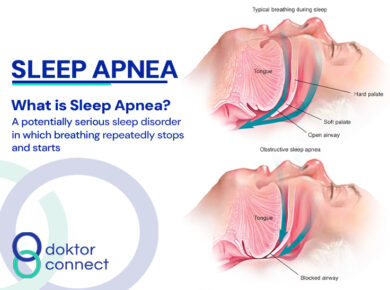Every 30 seconds, someone in the world dies from a hepatitis-related illness.
According to the WHO, 1.1 million people died from hepatitis in 2019, and over 300 million people have Hepatitis B & C worldwide.
Hepatitis is an inflammation of the liver. Your liver is at the upper right of your abdomen, and most of it is under your right rib cage, so you cannot feel it.
The liver is the largest solid organ in the body, and it performs the following functions:
- Filters harmful products from the body
- Excretes bilirubin, a byproduct of red blood cell breakdown
- Produces proteins essential for blood clotting
These functions are essential for a healthy life, and they can be severely affected by hepatitis.
So, what causes hepatitis?
Viruses (Hepatitis A, B, C, D, or E) are the most common cause of hepatitis.
However, there are other causes like:
- Excess fat in the liver, a development that is common in obesity, diabetes and hypertension (Non-alcoholic fatty liver disease)
- Storage of excess copper in the liver (Wilson Disease)
- Excess iron in the body, especially the liver (Hemochromatosis)
- The immune system attacking the liver (autoimmune hepatitis)
- Drugs like paracetamol, especially when taken in overdose
- High consumption of alcohol.
How common is hepatitis?
Nigeria is one of the countries with a high prevalence of viral hepatitis. Some scientific studies estimate the prevalence of Hepatitis B infection to be 13.6%, with women and children having the most burden. This situation can be easily averted because viral hepatitis is easily preventable through vaccination, regular screening, and early detection.
There are five different types of viruses that can cause viral hepatitis. They are:
Hepatitis A, Hepatitis B, Hepatitis C, Hepatitis D and Hepatitis E.
Hepatitis A
This is present in the stool of infected individuals. It is common in places with poor sanitation. You can get the disease by eating uncooked food prepared or washed in contaminated water, or drinking contaminated water. You can also get hepatitis A from eating contaminated shellfish. Moreover, individuals with hepatitis A can also transmit to others. This occurs via meal preparation with unclean hands after using the toilet.
The infection is usually short term, and most people recover. However, it can be very harmful in pregnant women.
Hepatitis B
It is transmitted through contact with body fluids such as blood, vaginal secretions or semen from infected individuals. This means that mothers can pass it on to their children, and it can also be spread through blood transfusion with unscreened blood, sharing sharp objects and intravenous drug abuse.
Hepatitis B virus can survive outside the body for more than a week, but it is not spread through social activities like hugging or holding hands.
The virus can cause a short term infection that may not show any symptoms. It can also cause chronic hepatitis, leading to liver cirrhosis, chronic liver disease or liver cancer.
Hepatitis C
It can be spread through the same means as Hepatitis B, and it is more likely to proceed to the chronic stage. Right now, there are no vaccines for the Hepatitis C virus.
Hepatitis D
It has the same route of transmission as Hepatitis B. However, it only occurs in people who have been infected with Hepatitis B. Combined infection of Hepatitis B and D can result in adverse outcomes. Hepatitis B vaccination also offers protection from Hepatitis D Virus infection.
Hepatitis E
This is also similar to Hepatitis A. It is spread via contaminated water and food. There are vaccines against Hepatitis E, but they are not widely available.
How to know if you have hepatitis
Some common symptoms of hepatitis include:
- Yellow eyes
- Dark-coloured urine
- Itching
- Right upper abdominal pain.
Generally, if you are experiencing any unusual symptoms, please speak to a doctor now to get prompt advice and prevent further complications.
Ways to protect yourself from hepatitis includes;
- Stay away from eating raw or poorly cooked shellfish, raw salads and vegetables washed in contaminated water, untreated drinking water, including ice cubes.
- Ensure you get Hepatitis A vaccination if you’re travelling to places with poor sanitation. Also, close contacts of people who have been infected should be immunized.
- Get Hepatitis B vaccination. Remember, it also prevents you from having Hepatitis D.
- Register for antenatal care if you are pregnant and ensure that you get screened for hepatitis.
- Practise safe sex
- Do not share any sharp equipment such as needles, syringes, razors etc.
- Avoid sharing toothbrushes with other people.
- Cover any cuts or wounds with a dressing.
- Clean contaminated surfaces with bleach
- Care for your liver; stay away from medication abuse and reduce alcohol intake.
It is vital to check the state of your liver. You can do a liver function test, get screened for hepatitis B and hepatitis C virus, get Hepatitis B vaccination and much more here.
Finally, you have only one liver, take good care of it.



